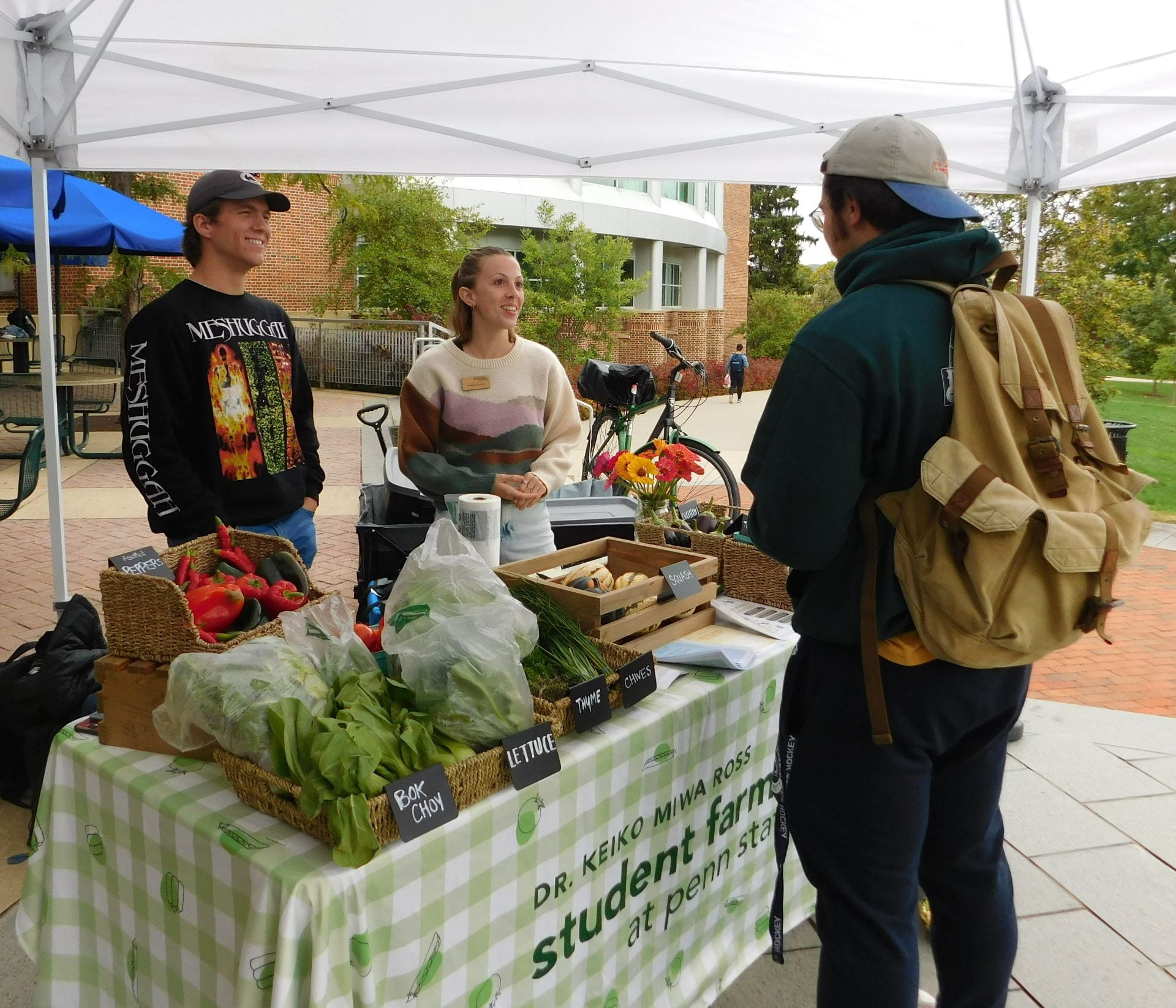Our new student-led initiative is bringing fresh produce directly to campus for students, faculty and staff to enjoy all month long. The Dr. Keiko Miwa Ross Student Farm and the Lion’s Pantry are partnering to offer a pay-what-you-can farmers market every Monday in October to make healthy eating easy and affordable.
The stand is set near the HUB steps each Monday from 3-6 p.m., and all are invited to come get hyper-locally grown vegetables from the Ross Student Farm. Produce will vary throughout the season, but may include vegetables like lettuce, zucchini, tomatoes, chives, herbs, squash and more.
No payment is required for the produce, but customers are invited to pay what they can using cash, check or LionCash. Donations are also accepted to help support this new project.
The new pay-what-you-can farmers market is made possible by the generous support of Robert and Cynthia Van Druff.
The project is led by Jimmy Alamia, a second-year student and Schreyer Scholar studying chemical engineering. Alamia is a member of Student Farm Club and a Lion’s Pantry intern, and he organized a team that will set up and staff the farm stand each week.

“This food insecurity project and my work with the Lion’s Pantry has shown me that a lot of people’s circumstances come from factors that are out of their control,” Alamia said. “Where you are born, who raises you, where you live, the school you go to, and the opportunities you can access force our lives in different directions. It can be unfair, but piloting this stand is my part to make Penn State a little fairer.”
The farm stand is part of Penn State’s greater mission of eliminating nutrition concerns among the campus community. Along with the new market, students have access to the newly renovated Lion’s Pantry facility throughout the semester.
“We know our pay-what-you-can farm stand cannot be the only food insecurity solution at Penn State, but it serves as a symbol to the work that needs to be done to ensure consistent access to basic needs,” Alamia said.
Students who are facing challenges meeting basic needs, like food or housing, can learn more about available basic needs resources and reach out for support if needed.

